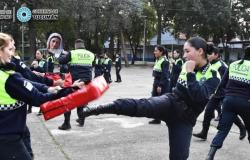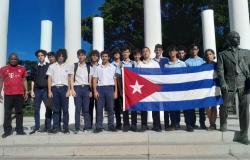The municipal election in Río Cuarto is astonishing for one elementary fact: even though the election was divided, Peronism gained 13 points over radicalism. The astonishment increases because the UCR governed the city many times, in which it has deep roots and the latest efforts have not been brilliant.
Part of the victory is explained by two reasons that are already becoming a tradition in Córdoba. Llaryora’s Peronism has taken two parallel tactics to unknown levels in the province: extreme pressure and the use of the entire State apparatus to get their own people to vote and do everything possible to prevent citizens from voting for the that they have less chance of controlling.
clientelism, on the one hand; scaring away, on the other.
You will say: that is what any party tries to do here and in China. Yes. But at some point there must be a limit, so as not to undermine democratic legitimacy, so that alternation is a real possibility; because it is assumed that we want to live in a pluralistic society and we do not want to lead to a de facto single-party Formosa regime. We are Córdoba, hey.
Clientism is older. But scaring away is a novelty.
Llaryora already did it. He is the first governor in the democratic history of Córdoba who won the gubernatorial election by having the Electoral Justice kindly “warn” that, in reality, mandatory voting was a joke: days before they advertised that there would be no fine for anyone who did not go to vote. .
They repeated it in the Municipality. Daniel Passerini was the first mayor elected under the slogan: “If you don’t vote, nothing happens.” That was for those who couldn’t control. At the same time they applied clientelism to the stick with their rented militants, gnocchi and other beneficiaries of the state apparatus. Not only the remises worked at full capacity. They set up a call center that made history in the Instituto club where all the well-off people practically had their phones hijacked to proselytize person to person from their contact lists.
In Río Cuarto there was also a call center, like in Córdoba, in addition to the typical remises that were not enough to transport their own. And there was also scaring away: the long holiday was chosen specifically for an election that was difficult. They got a little out of hand. Less than 56% of voters voted. The new mayor, Guillermo De Rivas, was actually voted for by less than 21 percent of those registered. A low-intensity democracy that looks like a single party to which little by little we are getting used to.
#Argentina





